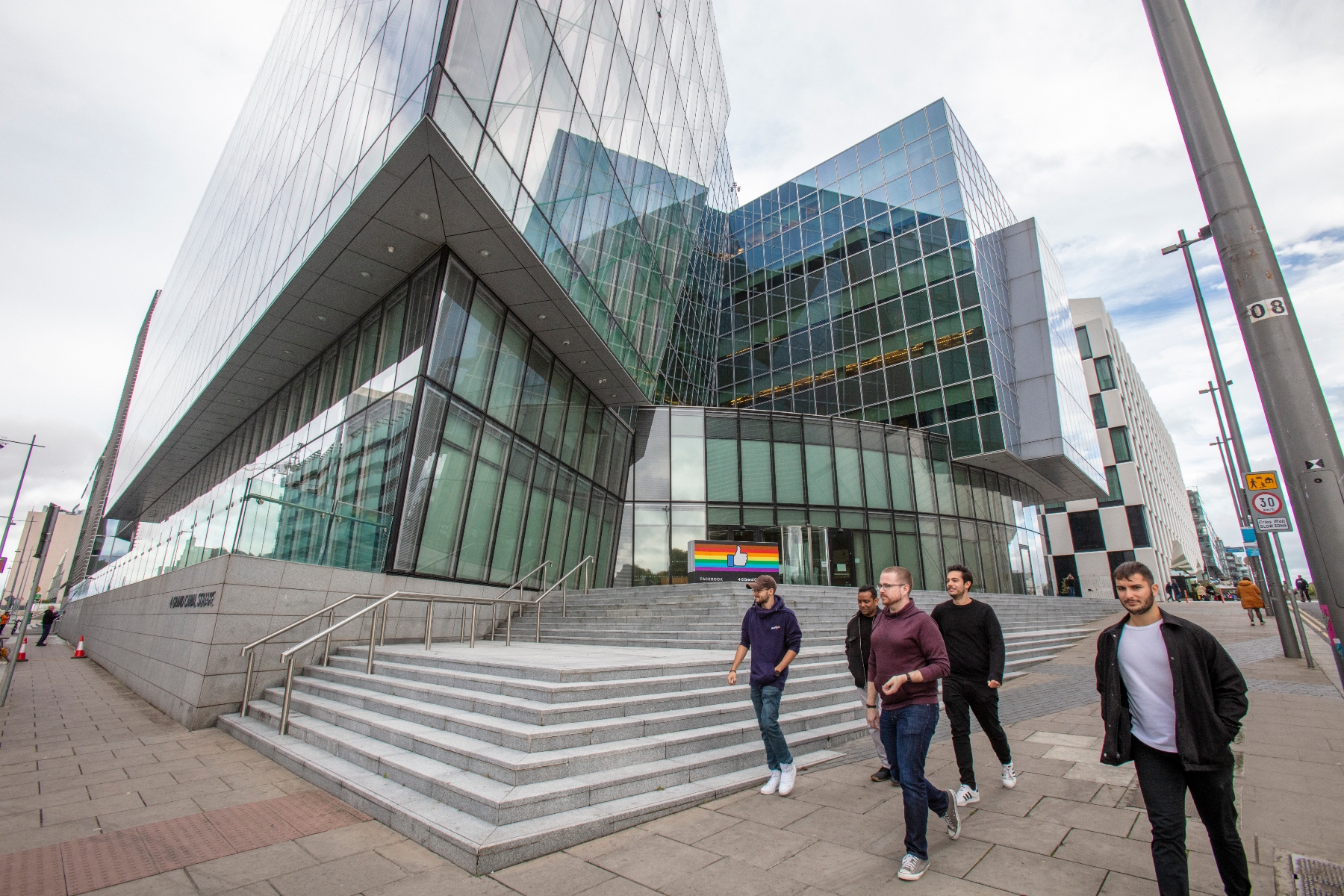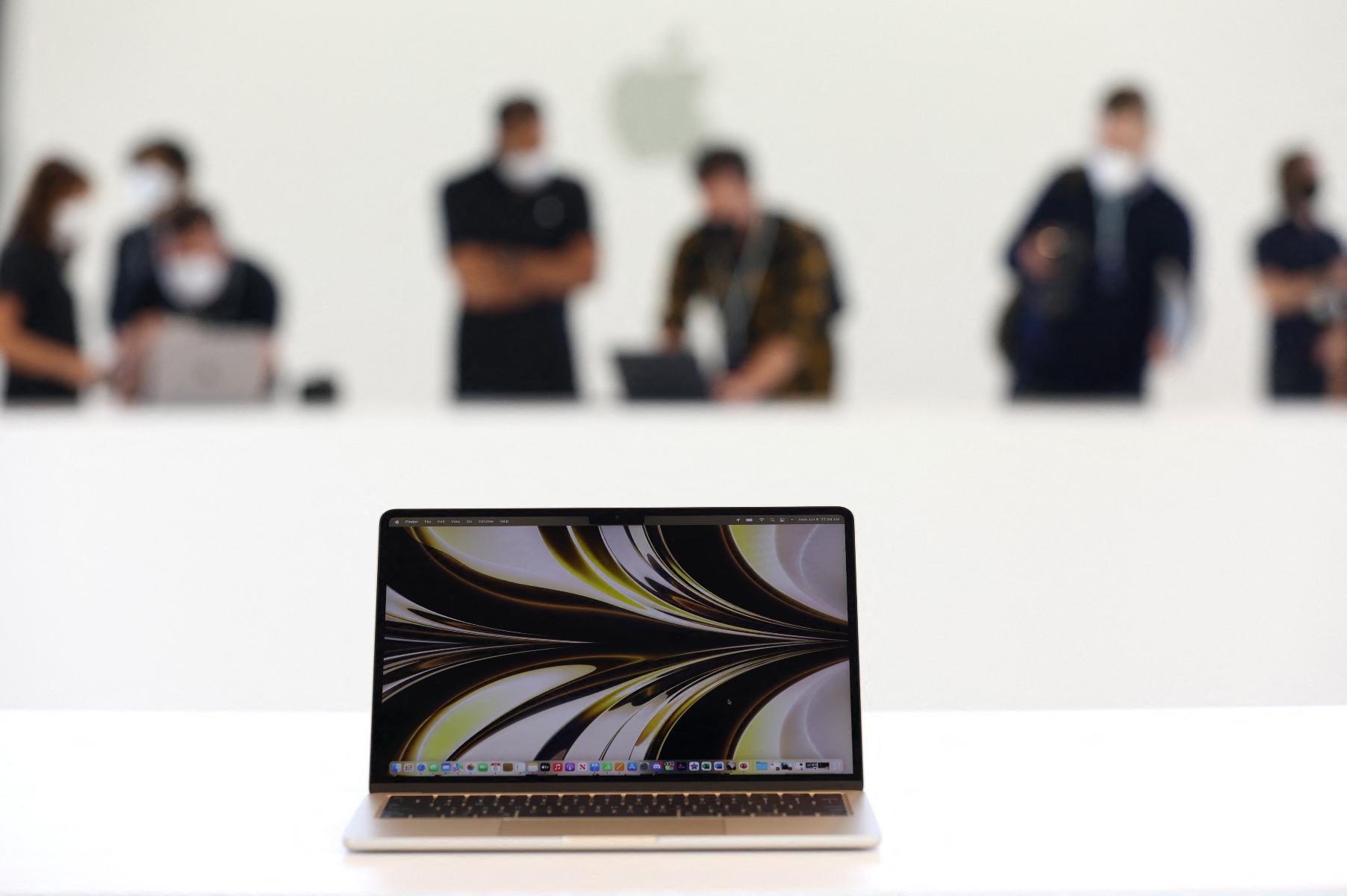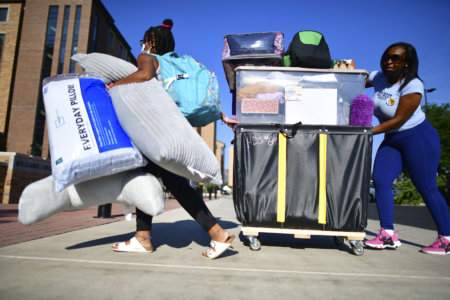
If you meet an Irish person, you’ll find them charismatic, cheerful, and generous — for good reasons. Despite a global pandemic, the World Happiness Report from the UN shows that Ireland is the 13th happiest country in the world. Little wonder why students worldwide travel to Ireland.
Currently, the country is home to 32,000 international students, according to the latest statistics by the Irish Universities Association. In this versatile study abroad destination, there is something for every student, regardless of whether you are a nature lover, history buff or a Game of Thrones enthusiast.
Before you pack your bags, here are five things to remember for an enriching study abroad experience in Ireland:

As Dublin, Cork and Galway were rated as one of the best student cities, it is no wonder they’ve become a popular hubs among international students. Source: Paul Faith/AFP
Travelling to Ireland: Top tips for a seamless journey
1. Dress for the weather
Generally, Ireland has an oceanic climate that produces a damp, cloudy, and rainy atmosphere. Naturally, rain can be your second best friend while studying here. Over the years, the Emerald Isle has also been hit by several storms, making it very difficult and dangerous for pedestrians to traverse the streets.
Essentially, you should spare a few warm clothes from home if you plan to study and live in Ireland. If you come from a country with a warmer climate, it pays to do some research to decide if it’s better to purchase some winter clothing back home or in Ireland. Depending on your budget, you can choose to buy it from Uniqlo, Marks and Spencer, or Decathlon. You should also consider browsing for winter clothing at a charity store or a second-hand shop.
If you are planning to buy an umbrella, we highly recommend you purchase a local umbrella as it is sturdier to withstand the intense wind speeds or heavy rain in Ireland. A great pair of waterproof boots will also improve your walking experience during the damp climate, especially if you plan to explore one of the Irish’s natural attractions.

As an international student, cooking is a great way to save money if you are on a tight budget. Source: Justin Sullivan/Getty Images North America/AFP
2. Bring a rice cooker
This may come as a surprise but they are extremely handy to diversify your cooking experience in Ireland. As a student, you may not always have the budget to splurge on the amazing food this student city has to offer. In reality, you will often find yourself figuring out what to cook for your next meal.
Curious to know some amazing rice cooker recipes? You can easily Google a variety of recipes online. From ribs, pancakes, to pizza, the possibilities are endless — and it might just be a saviour if you are in need of a midnight snack.
Rest assured that most university student accommodations will provide you with a rice cooker. For those who stay in their own private accommodation, you have the option to source a rice cooker from the local electronics store or bring a rice cooker from home. There’s no right choice to make in this scenario as it is all a matter of personal preference.

As more universities embrace online learning, a good laptop is an essential part of your study abroad experience. Source: Justin Sullivan/Getting Images North America/Getty Images/AFP
3. Check through your electronic gears
When you bring any electronic equipment to study abroad, it’s always a good idea to check your warranty on these items and ensure that they are in good condition to last you through your time abroad.
Like any other student destination, it is expensive to deal with these issues when you are in a foreign country. Worse, you might fork out a hefty sum to get a replacement.
Apart from your electronics, having one or two backup drives will ensure that your data is always back up securely. Notion and Google Drive can be a great alternative to physical hard drives as they not only help you to save that precious luggage space for other items, but they are effective budget options to a physical hard drive.
4. Pack important medication
Once you have collected your Biometric Residence Permit, you can sign up with a local General Practitioner in Ireland. In most cases, it will take some time to set this up at the beginning of your academic term.
Bring all of your personal medications or prescriptions before travelling to Ireland. Depending on where you are from, it could be cheaper than purchasing them at a pharmacy in Ireland. Beyond that, it is also prudent to keep a basic first-aid kit for common injuries such as cuts or burns.
this was literally my bed pillow during study abroad :,) https://t.co/x5TVvXUYAc
— gene parmesan (@samburgesa) January 5, 2021
5. Bring something personal
Studying abroad can be difficult. From homesickness to challenges in making friends, having something to remind you of home can help you deal with and overcome these hurdles as an international student. It could be anything: a snack from your native country, a journal, photo, or your favourite books.
International students from Asia will be relieved to know that most major student cities, such Cork, Galway, Limerick, Belfast, and Dublin have Asian supermarkets where you can source a variety of local delicacies from your home country.










